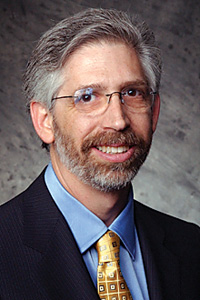New Web site gives sleep its due

By HME News Staff
Updated Wed May 31, 2006

WESTCHESTER, Ill. - Dr. Lawrence Epstein got bit by the sleep bug in medical school--back before it was part of the curriculum. Now board certified in sleep medicine, Epstein serves on the faculty of Harvard Medical School and is the current president of the American Academy of Sleep Medicine, which boasts over 5,000 members and 900 accredited sleep centers. The academy just expanded its online education with CPAP Central (www.sleepeducation.com/CPAPcentral/). Epstein spoke recently with HME News about the importance of giving sleep its due. HME News: Is sleep gaining more widespread respect in the medical community? Dr. Epstein: Slowly but definitely. It's taken awhile for the science and knowledge base to develop to truly recognize the impact that sleep has on overall health. It was only maybe five years ago that studies came out showing sleep apnea not only makes you feel bad, but there's health consequences. It's a risk factor for the development of hypertension, heart disease and strokes. HME: How are you using the Web to promote sleep awareness? Epstein: The sleep education site is a place they can go to find out about sleep disorders, accredited sleep centers and find sleep specialists. The CPAP Central section is designed to provide more education to physicians. What we found startling is that the number of patients with this disorder who are not diagnosed is huge--it's estimated at 80% to 90%. Doctors don't ask about sleep, people don't go to the doctor for sleep. So the question is, how do we get this info out there? How do we promote using it? That has to deal with the issue of CPAP compliance. HME: The CPAP itself seems like it would present an obstacle to patients. Epstein: Some people take to it very quickly, some people never adapt. It takes awhile to get used to it. Once people use it and feel much better, they are more likely to use it. And as strange as it may look and sound, people do very well with it. It just becomes part of their going to bed routine: put on their pajamas, brush their teeth, put on their CPAP. There's a variety of different styles of masks and equipment that can be tailored to the individual, making sure that they get a good experience with it early on because that really shapes their opinion. HME: Outside of the physician's office, what role can other healthcare providers play? Epstein: The more we can provide support and provide remedies, the more likely they are to use them. Allied health, respiratory therapists, sleep technologists--they all interact with the patients when they're trying to use the CPAP and again can provide valuable support and information.
Comments